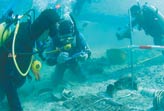Politics
G8 leaders want tougher nuclear safety rules
Updated: 2011-05-27 07:36
(Agencies)
DEAUVILLE, France - Leaders of the Group of Eight want more stringent international rules on nuclear safety following the disaster at Japan's Fukushima plant, French President Nicolas Sarkozy said on Thursday.
A massive earthquake and tsunami in March crippled the Japanese nuclear power plant, sparking calls for tougher global safety measures and prompting some governments to reconsider their nuclear energy strategy.
"We all wish to get a very high standard of regulation on nuclear safety, that will apply to all countries involved in civilian nuclear energy and which will take safety to the highest levels ever," Sarkozy told reporters at the summit in the northern French seaside resort of Deauville.
Sarkozy said there was no alternative to nuclear power and insisted that safety, not cost, had to drive projects.
"As far as nuclear is concerned the first criteria that of safety," said Sarkozy. France produces the bulk of its electricity from nuclear power.
The French president did not say how regulation could be improved but other officials, including EU Commission President Jose Manuel Barroso, have called for a review of the International Atomic Energy Agency's (IAEA) nuclear safety convention.
A top aide to Prime Minister Naoto Kan said Japan, still confronting the aftermath of the biggest nuclear accident since Chernobyl a quarter of a century ago, also favoured a review of the IAEA standards and stronger cooperation between national safety watchdogs.
Japan and the IAEA want to host an international conference on nuclear safety next year to share lessons from the accident, Kan's chief cabinet secretary Tetsuro Fukuyama also said.
Mandatory Safety Rules?
German Chancellor Angela Merkel, who reversed a decision to extend the life span of Germany's nuclear plants after the Japan disaster, said she was reasonably happy with the wording on nuclear safety G8 leaders would use in their final communique.
"We need a better cooperation of all nuclear security organisations in the world," she told reporters. "This is remarkable progress compared to the present situation."
G8 member Russia, which has an important domestic nuclear power industry, wants to make the IAEA's safety standards compulsory and restrictions on building reactors in earthquake-prone areas.
Nikolay Spassky, deputy chief of Russia's state nuclear company Rosatom, said countries using nuclear power should be forced by international law to meet IAEA nuclear safety standards.
"This is definitely not the case today," he told reporters. "The responsibility of a state for taking timely and sufficient measures to respond to disasters should be introduced too."
However, diplomats at the Vienna-based IAEA say member states are split over the issue of mandatory international safety rules, and whether a body like the IAEA should have powers to enforce them.
Currently, the IAEA draws up safety recommendations but national authorities are mainly responsible for overseeing safety issues.
European nuclear watchdogs agreed on Wednesday to check the resilience of the region's 143 reactors to earthquakes and other natural disasters, in what are called "stress tests".
But the EU's Barroso said such tests should not stop at Europe's borders: "When we talk nuclear, we talk global. We want nuclear stress tests to go beyond Europe."
Specials

Suzhou: Heaven on Earth
Time-tested adages sing praises of Suzhou, and Michael Paul Franklin finds it's not hard to understand why on a recent visit.

The sky's the limit
Chinese airline companies are increasingly recruiting pilots and flight attendants as the industry experiences rapid expansion.

Diving into history
China's richest cultural heritage may lie in the deep, like exhibits in a giant underwater museum.